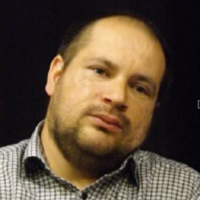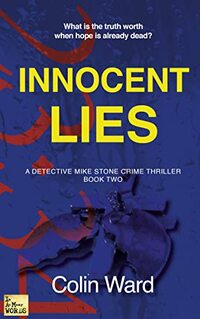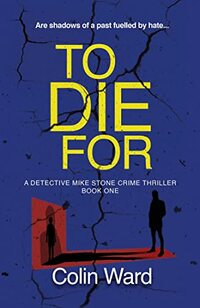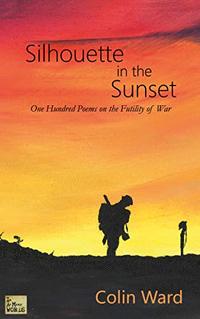What is a childhood ambition that you had?
I always wanted to do something constructive and creative. For a short time I dabbled with wanting to be a Fire Fighter, but on reflection I think I like fire too much to want to put them out. I loved art, drawing, music, and of course writing. My mum was very creative and always encouraged me to pursue my interests.
When did you first know you wanted to be a writer?
I had always enjoyed writing, telling stories, creating characters, and so on. Originally it was more through drama. Unfortunately, my degree really switched me off reading for several years, but when I found my way back, via Crime Fiction, I felt like I’d found my genre. I’ve always loved the Crime genre – from A Touch of Frost to Cracker, and pretty much anything else by Jimmy McGovern. Being a teacher took too much time. Finally, I left teaching and launched myself at the writing, head-on.
What purpose does writing serve in your life?
Stories are an outlet. I love the idea of capturing people’s attention, drawing them into the lives my characters lead. I have very little interest in non-fiction writing because I enjoy the drama of the plot twist, mystery, shock, and emotion that one can craft when not restricted by factual accuracy to the extreme. That’s not to say I don’t research carefully for my writing, but I do make good use of dramatic licence.
What is your composition process for writing music?
I have to hear the melody and it has to evoke an emotion. My interest and taste in music is wide, but I hear music fully scored in my head. Having a knowledge of music theory helps me to understand the technicality of creating it, and even though I am primarily a guitarist, I compose far better on a piano. Of course, songs and musicals need great lyrics, and my connection with poetry links my words with music.
What sparked the idea for your first novel, "To Die For?"
I only began knowing I wanted to write a fast-paced Crime Thriller set in Birmingham. After a little brainstorming I decided I wanted the city to play a genuine part in the story, and for the main character to be facing more than just a criminal foe. I decided to throw the whole idea of the extent of human depravity at him, as if he jinxed himself by asking how dark humans can get. I was inspired by writers like Mark Billingham, Simon Kernick, and Lisa Ballantyne. In a way I wanted to say to the reader: come on a journey with Mike Stone – one that you won’t want to, but your love of story will make you.
What are the key characteristics of the hard-boiled genre of crime fiction?
Danger. Threat. Physical and emotional violence. The main character has to face the risk of significant hurt or loss, and they must be forced to fight for that. Modern crime writing is thriving most at the moment when a moral ambiguity confuses the mix. The good guy breaks the rules in order to achieve “justice,” or the villain’s motivation is coming from somewhere that is actually morally sound, though perhaps executed in a questionable way.
What are the best true crime books you've read?
I don’t read “true crime.” It doesn’t appeal to me at all. Sometimes I will watch a documentary on it, but the problem I have is that in order to make it “entertaining” enough, the producers still need to give a narrative to it. Fictional stories can do exactly the same but simply frame the story in a fictional context. I find the question and exploration of truth more interesting than someone trying to tell me “this IS true.” As soon as you try to tell someone you have written THE truth, I believe you are closing down doors to questions and doubt. I want these to be wide open.
What challenges did you face while writing your book, Ripples: a collection of poetry?
Selecting, grouping and ordering the poems was a challenge. Of course a reader can dig into the collection and read them in any order, but I still wanted to provide some framework to help communicate my ideas. The poetry explores concepts of mental health, identity, loss, death, and some particularly dark poems such as Alice Through the Looking Glass. Some of the poems are deeply personal, but they have to be universal enough for readers to access them emotionally. I don’t want my poetry to merely be an exercise is word-cleverness.
How much did you research while writing your book, Silhouette in the Sunset: One Hundred Poems on the Futility of War?
War has been a subject of great interest to me from a young age. Although I wasn’t brought up to be a staunch pacifist, it is definitely something I inherited. Wilfred Owen has always been a great inspiration, and that’s lead me to a lifetime of researching the physical aspects of war as much as the philosophical exploration of it. For me, there is simply nothing ideal, romantic, or heroic in war. And neither is a war even won: they are merely lost more by one side than the other. Hence, the futility.
What advice would you give to someone who wants to write plays/musicals?
In plays, dialogue is king. Listen to people. Watch people. Hear the way they speak and learn to appreciate the magnifying glass needed to capture an entire story in no more than a couple of hours. Unlike a film that can be watched again and again, a play and the audience’s experience can only be captured once, and the moment vanishes as quickly as it appears. More importantly, remember that as the writer you are only one part of the team. Your script should instruct the actor on their character, what they say, and who they are. It’s not your job to tell them how it must look, or how the character moves. I write very few stage directions – that is what actors, directors and designers are for.
What is your favourite Mark Billingham novel and why?
I never give “my favourite book is…” answers because each book has its own merits. His latest, “Cry Baby” is brilliant, and I love his Tom Thorne series. His previous one, Love Like Blood, was a brave exploration of honour killings. Mark is a very approachable and friendly author, a genuinely funny man, and generous in talking about his writing, too.
What is the best piece of advice you've ever been given as a writer?
Always employ the services of a professional editor. Self-publishing is expensive, and we can’t all afford multiple stages of editing. When it comes to my novels, however, I chose to get a pro copy editor, and it was the best thing I could have done. She did fantastic work, really highlighted some of my idiosyncratic bad habits, and tweaked my work without changing my narrative voice or style. My poetry is edited by a fellow poet and writer, and in return I help her with formatting and design work, so we skill-share.
But editing stories and novels? Get a good pro who is an accredited member of the CIEP.
How has been your experience of writing for about twenty years or so now?
I love writing. I love telling stories, and taking my readers and audiences on a journey. But don’t expect it to pay well, and always expect to have to fight to get your work read.
What is the name of your next book?
“Innocent Lies” – it’s the second in a trilogy
How were you first introduced to AllAuthor? Do you have any feedback?
A fellow indie writer showed me the site. I like the site as it is easy to work with. The featured book, marketing tools, fun book cover competitions, all makes it more accessible.








